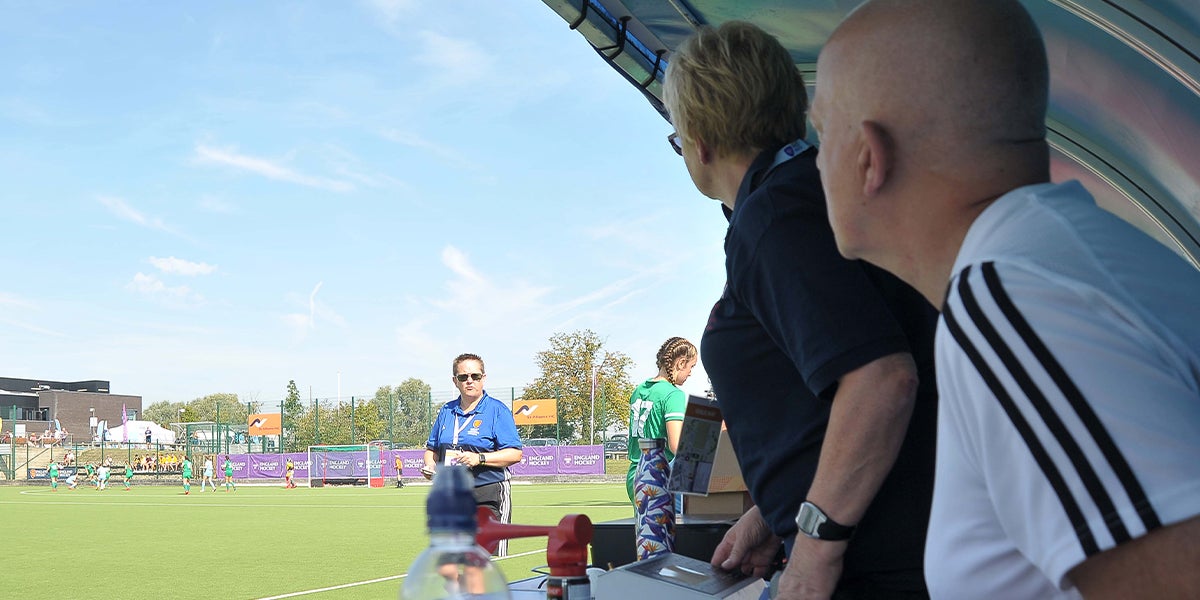- Community
David Ellcock takes a look at the role of the hockey match official for the England Hockey League

Most of you will be aware that there is a match official (MO), or as they often erroneously called, a ‘TD’, appointed to every English national league game, but what are they there for and what do they do?
The MO’s role, at its simplest, is designed to take much of the pressure around running a game of hockey off the shoulders of the umpires, to leave them to concentrate on the match itself.
On arrival at the ground, usually an hour-and-a-half to an hour before start time, the MO will introduce themselves to the two managers and the umpires and check that there are no issues. Assuming that all is well, the MO will check that all the paperwork is ready and up to date and the MO will go and check that the pitch is set up appropriately – that the nets are in good condition, and the pitch is correctly marked etc. Shortly before the game a discussion will be held with the umpires to agree issues such as timing of disciplinary cards, dealing with overly vociferous benches and so on. At this point the MO will also inform the umpires what length of half-time break has been agreed.
When the game is underway the MO has four main jobs. Firstly, to control all substitutions to ensure that they are carried out in line with the rules of hockey along with noting the time that each substitute first enters the field of play. Secondly, to work with the team managers to ensure that the bench personnel behave appropriately. Thirdly, to record the time of all goals scored and to note their type – field goal, penalty corner or penalty stroke. Fourthly, to time all temporary suspensions and to return the suspended players to the field of play when their suspension is over.
At the end of the game, the MO is required to complete the match report form, and get it checked and signed by the managers and the umpires, before the team managers input it into England Hockey’s GMS.
Being an MO is a great way to be involved with our game at a high level. You need to have a good knowledge of hockey along with a thorough knowledge of the rules and regulations. You will also need a sense of fair play and an ability to focus on detail while there is a great deal of activity going on around you.
